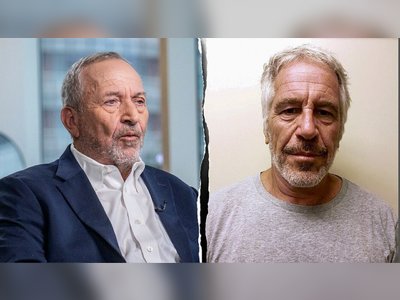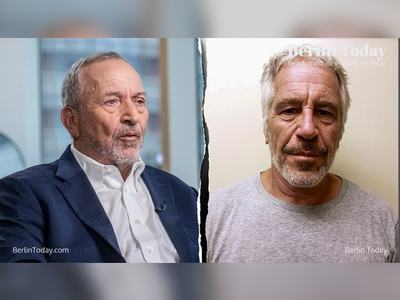President Biden Issues Preemptive Pardons Ahead of Trump Administration
Outgoing US President grants clemency to critics of successor and family members to avert possible legal actions.
As the United States undergoes a presidential transition, President Joe Biden has exercised his constitutional power to grant pardons, encompassing critics of incoming President Donald Trump and members of Biden's own family.
This action takes place just days before Trump's inauguration and aims to preclude potential prosecutions perceived as politically motivated.
Among those who received clemency are Anthony Fauci, a prominent immunologist and former medical advisor, and Mark Milley, the retired General and ex-Chairman of the Joint Chiefs of Staff.
Furthermore, members of the congressional committee that investigated the January 6 Capitol attack are included in this pardon list.
According to President Biden, the pardons are intended to prevent 'unfounded investigations' that could adversely affect the lives of those granted clemency.
Biden emphasized that these pardons should not be seen as acknowledgments of any guilt, asserting that the individuals have served the nation honorably.
This development follows previous statements by Donald Trump suggesting legal measures against those he claims politically attacked him or implicated him in the Capitol incident.
Anthony Fauci, who retired in 2022 after a distinguished tenure at the National Institutes of Health, had frequent disagreements with Trump regarding the COVID-19 pandemic.
Fauci expressed gratitude for the pardon, maintaining he committed no wrongdoing.
Mark Milley, who previously criticized Trump over Capitol unrest issues, also welcomed the pardon.
In addition to political figures, Biden's pardons covered several family members, citing threats and targeting due to their familial connections as the reason for this preventive action.
Family members pardoned include James B. Biden, his spouse Valerie Biden Owens, and Francis W. Biden.
Biden stated that none of these individuals were under current investigation.
Moreover, Biden commuted the life sentence of Leonard Peltier, a Native American activist convicted for the 1975 murder of two FBI agents.
Peltier, maintaining his innocence, will complete his sentence under house arrest after nearly 50 years of incarceration.
Earlier, Biden granted pardons to individuals recognized for community contributions, highlighting a pattern of clemency aimed at non-violent offences.
Notably, Marcus Garvey, an esteemed civil rights leader from history, received a posthumous pardon for a 1923 mail fraud conviction, perceived by many as politically driven.
President Biden's term reflects an expansive understanding of the presidential pardon power, historically utilized extensively by outgoing presidents.
However, the issuance of anticipatory pardons introduces a new practice, which might inform approaches by future administrations, including Trump and others.
This action takes place just days before Trump's inauguration and aims to preclude potential prosecutions perceived as politically motivated.
Among those who received clemency are Anthony Fauci, a prominent immunologist and former medical advisor, and Mark Milley, the retired General and ex-Chairman of the Joint Chiefs of Staff.
Furthermore, members of the congressional committee that investigated the January 6 Capitol attack are included in this pardon list.
According to President Biden, the pardons are intended to prevent 'unfounded investigations' that could adversely affect the lives of those granted clemency.
Biden emphasized that these pardons should not be seen as acknowledgments of any guilt, asserting that the individuals have served the nation honorably.
This development follows previous statements by Donald Trump suggesting legal measures against those he claims politically attacked him or implicated him in the Capitol incident.
Anthony Fauci, who retired in 2022 after a distinguished tenure at the National Institutes of Health, had frequent disagreements with Trump regarding the COVID-19 pandemic.
Fauci expressed gratitude for the pardon, maintaining he committed no wrongdoing.
Mark Milley, who previously criticized Trump over Capitol unrest issues, also welcomed the pardon.
In addition to political figures, Biden's pardons covered several family members, citing threats and targeting due to their familial connections as the reason for this preventive action.
Family members pardoned include James B. Biden, his spouse Valerie Biden Owens, and Francis W. Biden.
Biden stated that none of these individuals were under current investigation.
Moreover, Biden commuted the life sentence of Leonard Peltier, a Native American activist convicted for the 1975 murder of two FBI agents.
Peltier, maintaining his innocence, will complete his sentence under house arrest after nearly 50 years of incarceration.
Earlier, Biden granted pardons to individuals recognized for community contributions, highlighting a pattern of clemency aimed at non-violent offences.
Notably, Marcus Garvey, an esteemed civil rights leader from history, received a posthumous pardon for a 1923 mail fraud conviction, perceived by many as politically driven.
President Biden's term reflects an expansive understanding of the presidential pardon power, historically utilized extensively by outgoing presidents.
However, the issuance of anticipatory pardons introduces a new practice, which might inform approaches by future administrations, including Trump and others.
AI Disclaimer: An advanced artificial intelligence (AI) system generated the content of this page on its own. This innovative technology conducts extensive research from a variety of reliable sources, performs rigorous fact-checking and verification, cleans up and balances biased or manipulated content, and presents a minimal factual summary that is just enough yet essential for you to function as an informed and educated citizen. Please keep in mind, however, that this system is an evolving technology, and as a result, the article may contain accidental inaccuracies or errors. We urge you to help us improve our site by reporting any inaccuracies you find using the "Contact Us" link at the bottom of this page. Your helpful feedback helps us improve our system and deliver more precise content. When you find an article of interest here, please look for the full and extensive coverage of this topic in traditional news sources, as they are written by professional journalists that we try to support, not replace. We appreciate your understanding and assistance.











